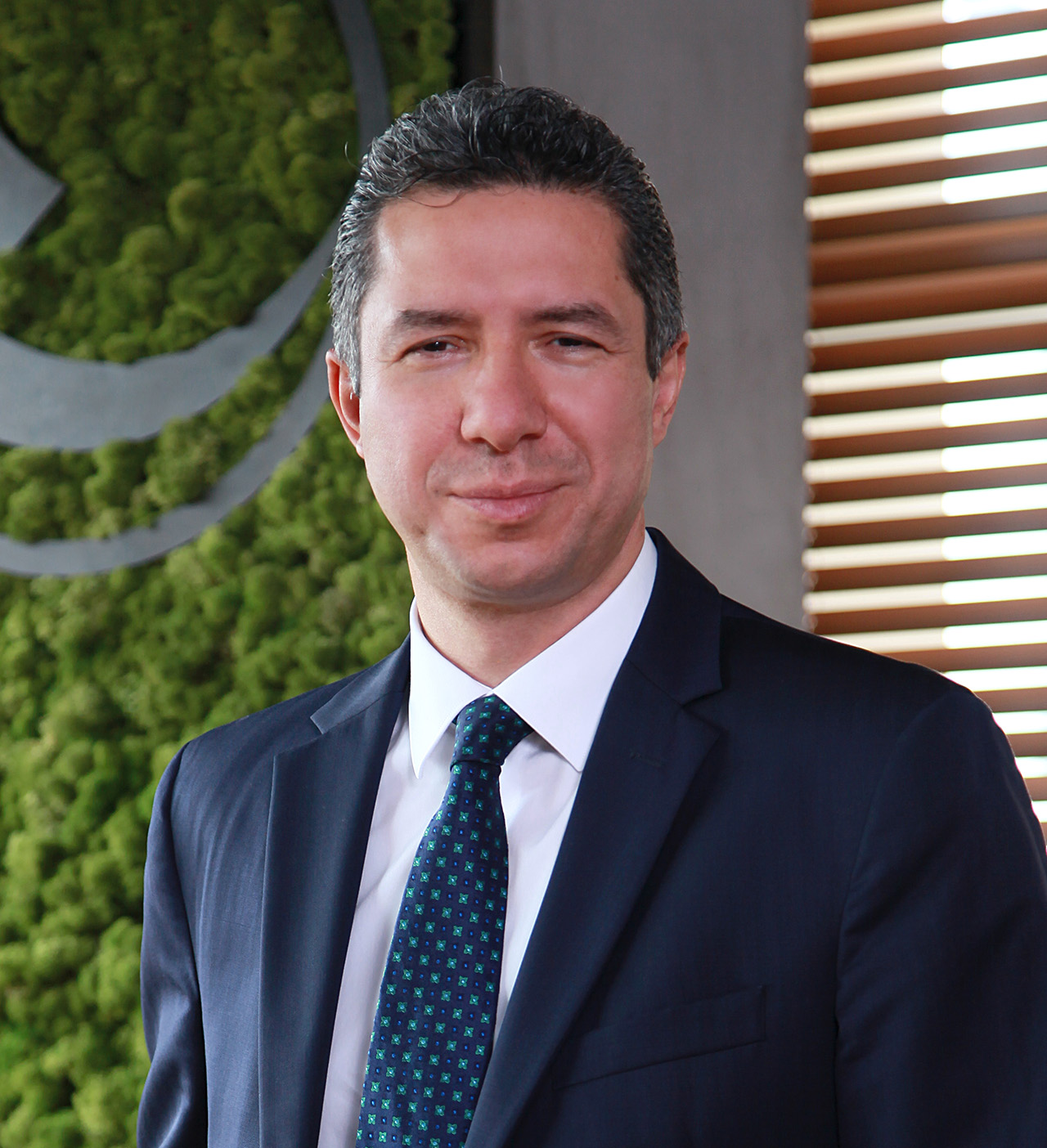Why is Business Integrity Considered a Cost?

- Fikret Sebilcioğlu CFE, CPA, TRACE Anti-Bribery Specialist
- Managing Partner
- E-mail to Fikret
"You do not wake up one morning a bad person. It happens by a thousand tiny surrenders of self-respect to self-interest." American author Robert Brault.
Does business integrity have a cost indeed? If it costs to put integrity at the heart of our business and to do the right thing, is this cost worth the pain?
I had the chance to attend various panels and meetings on corporate governance and institutionalization in various parts of Turkey. I have also taken part in studies on family businesses for many years and tried to understand the behaviors and management styles of bosses. Over the years, I have observed there is a perception that when companies do business in a transparent and accountable manner and in compliance with laws and code of ethics (which can be called "culture of business integrity”), they may not fully benefit from this under some circumstances, and even incur a cost due to the current market conditions and/or legal regulations.
This paper discusses this perception, the current business environment and the developments in the world and puts forth my perspective and proposals towards the development of culture of business integrity.
Turkey’s Position in Corruption Perceptions Index
I believe that the Corruption Perceptions Index Survey conducted every year by Transparency International, an international non-governmental organization, is a good source for evaluating today’s business world from the perspective of "culture of integrity”. In this survey, the business world and professionals are asked questions about corruption perception of the public and an index is created based on the answers given.
In the most recent index - 2014 Corruption Perceptions Index - Turkey ranked in the 64th place among 175 countries. Turkey was the 53rd in 177 countries in 2013 and went down to 64th. This is the biggest fall among the 175 countries listed. Considering that Turkey is one of the world’s top 20 biggest economies, this rank in the corruption perceptions index and deterioration of perception every year is rather worrisome.
Some might be optimistic and think that ranking the 64th in 175 countries is not bad at all. However, a report issued by the World Bank in May 2015 indicated that this rank of 64 did not reflect the truth and, in reality, Turkey is much lower in the list. The World Bank looked into the "reticence to tell the truth” regarding the said index results in its research. This research that involved seven countries including Turkey concluded that Turkey is the top country to "avoid giving the right answer” to the questions addressed in the corruption perception survey. In short, they were not honest and gave misleading answers to the questions. If you would like to review the report, you can access it via the website of the World Bank (report number WPS7276).
Unpunished Financial Statement Frauds and Effects of Tax Amnesty on Culture of Business Integrity
As you might already know, tax amnesties covering the correction of certain accounts on financial statements have been granted in recent years in Turkey. Accordingly, stocks that are recorded in the accounts that do not physically exist (fictitious stocks) and carrying values that are recorded in the accounts as cash and shareholders’ balances that do not physically exist (money withdrawn from the company) have been adjusted to their fair values after paying certain rates of taxes.
For instance; we understand from the statements given that a part of the taxes collected regarding the tax amnesty granted in 2011 was TRY 2.4 billion, which reveals that the companies that benefited from the amnesty falsified their stocks, cash accounts and shareholders’ current accounts of approximately TRY 80 billion on their financial books and submitted fraudulent reports to the Ministry of Finance. It should be noted that this amount is merely the portion of the fraud which we could calculate. The statements given are not sufficient to calculate the whole fraud. In other words, fraudulent reporting is above TRY 80 billion. Moreover, I would like to draw your attention to the fact that this amount is approximately four times higher than the total net income of the top 500 industrial businesses (TRY 22.7 billion), as disclosed by the Istanbul Chamber of Industry in 2011.
Now let us discuss the relation between these amnesties and if business integrity is a cost. Tax amnesties show that financial statement frauds are unfortunately not punished in Turkey. Even with these amnesties, the companies that commit financial statement fraud and submit fraudulent financial statements to the tax authority are charged with lower taxes than those companies that conduct business with integrity, keep an accurate record of accounting and pay their taxes on time. Thus, the former companies are in a way awarded. I think this is a sufficient reason for defrauders to consider business integrity a cost. It is in the hands of the lawmaker to correct this bias. Defrauders need to be punished in order to encourage the culture of business integrity.
Lessons to Learn from Tendencies in the World
The corporate scandals that occurred as a result of corruption and financial statement frauds in the Western world for approximately 30 years created a real trauma and shattered the public trust. The issue of public trust was handled seriously by lawmakers who felt responsible and the root causes of the events were searched. This trauma led to implementation of corporate governance principles and practices, and even the integration of such principles in laws. It was thought that this problem could be overcome by reinforcing the internal control systems. At this point, Sarbanes-Oxley law was created in the USA as a strict application of this approach. The corruptions needed to be answered and the public trust needed to be restored. Therefore, the actions taken were harsh, yet accurate.
However, it was realized in time that making an individual or a company transparent, accountable, responsible and fair or ensuring a company has an effective internal control system were not enough to solve the problems, and it became necessary to touch something deeper and to "remember” and "remind” this thing. This thing was "business ethics, compliance and integrity.” Indeed, in recent years business ethics, compliance and integrity have started to revive in the world and to become an integral part of the decision mechanisms of managements. For instance, some companies have begun to conduct risk analyses including anti-corruption policies, working standards, etc. while selecting suppliers, service providers or distributors to work with. Anti-corruption, in particular, has become one of the prominent elements of this tendency.
The most important situation that strikes my attention and which I envy in the above-mentioned development is that the parties to the problem did not attempt to cover the issue, rather they discussed about corruption and financial statement frauds open-heartedly, learnt their lessons and took immediate actions.
How Can We Put Integrity in the Heart of Our Business?
Corruption happens in Turkey, as anywhere else in the world. While making decisions, companies prefer to earn more money than to take the right business decision with integrity. The above-mentioned corruption perception index probably gives you the adequate idea as to where Turkey stands in the world. Tax amnesties reveal the financial statement frauds and unrecorded economy. However, I believe that in order to get stronger, we need to understand and analyze our weaknesses. For this, we need to discuss these issues more often and more sincerely and without being defensive and without reservations.
This would be a difficult and time-consuming process. Quoting the American author Robert Brault, "a man does not become a bad person nor honest in one night”. A wide range of stakeholders including company owners, investors, managers, lawmakers, public administrators and employees, attorneys, financial affairs managers, etc. should assume responsibility.
My proposals for creating a business environment with integrity:
- Doing business with integrity requires working in compliance with the highest values we set. We must be fair to everyone and keep our words.
- While making decisions, having a clear conscience that we made the right decision in a transparent way ensures ease for accountability. Peace of mind and having nothing to avoid lead to successful individuals and strong foundations for companies.
- Making business decision with integrity may not be as easy as one thinks. There may be times that we lose the opportunity to "earn more money” while we make the right decision. In order to avert hardship every time, core values should be set and business decisions should be taken without making any compromises. For instance, zero tolerance against bribery, respect for human rights, avoiding unrecorded transactions, no tax evasion, etc.
- Form a circle of people around you doing business with integrity and spread this. Doing business with integrity and transparency is an important element to differentiate individuals and companies. It should be the core approach to clear the business environment from all individuals and companies that carry out fraudulent business without forgetting that you are as strong as the weakest link of a chain. Corrupt companies and individuals cannot stay in transparent and clean environments. A hygienic business environment will form on its own.
- When we conduct business with integrity, our individual and corporate reputation will be strengthened and we earn the trust of third parties. If we assume responsibility, we will be a good role model.
I am aware that what is listed above may be hard to implement due to the realities of the current business environment. However, if we make compromises on accuracy, we will not be any different from the enemy we fight against and also, it will be meaningless to complain.
If doing business with integrity has a cost, this cost that is not reflected in the financial statements may be the most important asset of the company. You can be sure that somebody will see this asset of yours and value this asset more than you predict. When an international company comes to you to acquire your company or when a world giant wishes to cooperate with you, then you will be able to stand strong leaning on this asset, because you will be accountable for everything.
We should not avoid incurring the cost of business integrity. As we should be doing our business with integrity, we should also demand this from individuals and companies and we should create this most important asset in our business environment.


